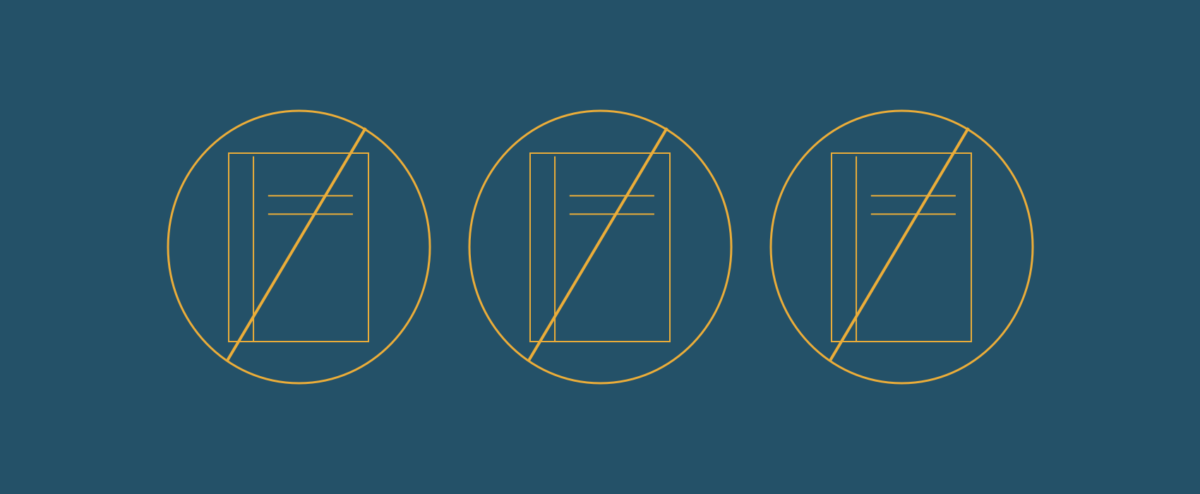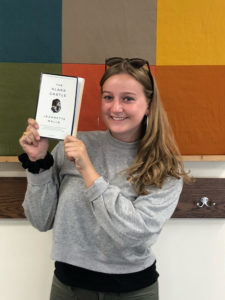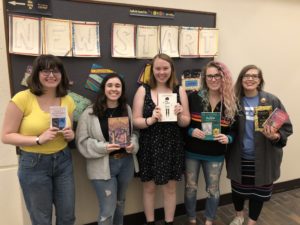 Meet this quarter’s Outreach Team! At the UCWbL, the Outreach Team spreads the word about the Writing Center’s services, engages with other DePaul departments, celebrates reading- and writing-related events, and shares the joy of writing throughout the community! This quarter, we have eight wonderful team members (nine if you count UCWbLina), and we’re excited to introduce ourselves to you by sharing our favorite banned books!
Meet this quarter’s Outreach Team! At the UCWbL, the Outreach Team spreads the word about the Writing Center’s services, engages with other DePaul departments, celebrates reading- and writing-related events, and shares the joy of writing throughout the community! This quarter, we have eight wonderful team members (nine if you count UCWbLina), and we’re excited to introduce ourselves to you by sharing our favorite banned books!
Banned books are books that schools, libraries, or other institutions have removed on the basis of the book’s content. Often, the books are removed because parents, students, or others find the material offensive or worry about the influence it will have on readers. Banned Books Week, which runs from September 23 through 29 this year, celebrates these books. No matter a book’s content, no book should be taken away from readers. Banned Books Week calls for an end to censorship, and promotes education through access to all information and literature.
Some of the books that have been banned are books that have shaped many of our lives, and they’re often the books that inspired us to love reading in the first place. Here are some of the Outreach Team’s favorite banned books:
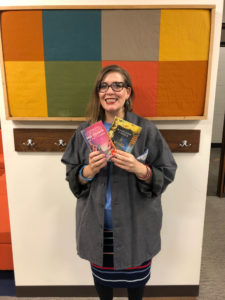 Jen: A Wrinkle in Time by Madeleine L’Engle and The Lord of the Rings by J.R.R Tolkien
Jen: A Wrinkle in Time by Madeleine L’Engle and The Lord of the Rings by J.R.R Tolkien
Jen says:
“Both Madeleine L’Engle and J.R.R. Tolkien were tremendously instrumental to me as a writer —and even more so as a person—and continue to be. Both authors’ works have met bans and challenges for being irreligious, but what they’ve done for me was really helped form my sense of what it means to be a good person in the world. I remember being in junior high and thinking that if what I was doing wouldn’t be approved of L’Engle’s Mrs. Whatsit than I probably shouldn’t be doing it! A Wrinkle in Time has met with more frequent bannings and challenges than The Lord of the Rings, dating from the time L’Engle published the work in 1962. And it’s never gone out of print since that time! I’m so glad that both of these works were in the world already when I was born and continue to be so!”
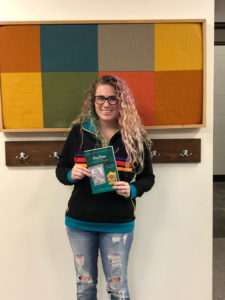
Savy: Fun Home by Alison Bechdel
“This is one of the most impressive books I’ve ever read. Alison Bechdel has defined and elevated the art of graphic memoir with this work, and I think it’s a wonderful book for all emerging writers and artists to read. I read this book when I was in the process of trying to add comic strips to my own memoir for class, and I related to so many different threads in this book. This book was banned from some institutions for being considered “pornographic.” While the book does show a little bit of nudity (not too much, though), calling it “pornographic” reduces and overlooks so much of what it is. This book takes a young girl’s relationship with her father and tells it through multiple lenses, from comparing her own life story to the themes of other literary works, to mirroring her story with other stories from her family. The writing and art are exceptional, and it’s truly a work of literature.”
Marin: The Kite Runner by Khaled Hosseini
Marin says:
“The Kite Runner, as well as Hosseini’s other book A Thousand Splendid Suns, is an amazing and truly eye-opening read. The book centers around the life of Amir and his experience growing up in Kabul, Afghanistan. It is about his life, as well as the life of his friend Hassan, and how their experiences, opportunities and treatment by others differ because of their separate socio-economic levels. While the story focuses on Amir, the themes of friendship, hope and the ability to survive through trauma and war works to shape the incredibly impactful story from a perspective not many people have known.”
Kate: The Glass Castle by Jeannette Walls
“The Glass Castle by Jeannette Walls is actually my favorite book of all time! My mom recommended it to me a couple years ago and once I started reading I couldn’t stop. The book follows the true story of Jeannette Walls’s life as nomadic child with a very dysfunctional family. The book has been challenged and banned as a result of graphic abuse and graphic sexual abuse as well as general heavy tones. I feel so strongly about this book because it depicts such a real view into Jeanette’s unconventional life and I think it is a book every person should read. Since this story follows Jeanette’s real life story, the challenging of this book prohibits her from sharing her story and I do not think anyone should be able to stifle her voice!”
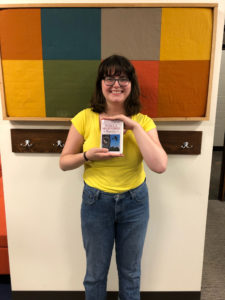 Meredith: To Kill a Mockingbird by Harper Lee
Meredith: To Kill a Mockingbird by Harper Lee
Meredith says:
“To Kill a Mockingbird is a Pulitzer Prize-winning book that had a huge influence on me as a teenager. Harper Lee’s 1964 novel about childhood, race and the legal system in the south has been banned for its use of racial slurs in dialogue and coverage of sexual abuse. Without censorship, the book clearly depicts the reality of a scared, racially-divided America and the kids who are trying to figure out how to act in that world. Most importantly, Lee’s story is about doing what’s right when it matters most, maintaining integrity even in the face of adversity, and having empathy for other people. Denying kids a chance to read this book denies them a chance to see that people can be forces for good even in a cruel world, a message that is inspiring and powerful.”
Caroline: Harry Potter by J.K. Rowling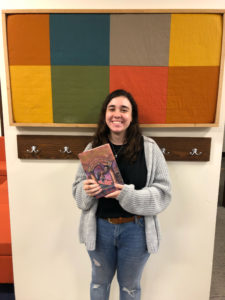
Caroline says:
“Harry Potter was the first book series that my whole family read together. My brother would wait for the midnight premiere and I would have to wait for him to read them before I could get my chance. Harry Potter is obviously an iconic series and character and it was such an important unifying moment for so many kids in my generation. Harry Potter and the story of how J.K. Rowling became a writer inspired my creativity and gave me more confidence as a writer myself. The books have been contested for promoting witchcraft and magic, setting a bad example for kids, and the later books being too intense and having too much violence. These books have inspired so many kids to start reading and gave so many kids who had not found a book they loved a way into reading.”
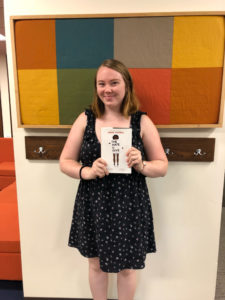 Charlotte: The Hate U Give by Angie Thomas
Charlotte: The Hate U Give by Angie Thomas
Charlotte says:
“The Hate U Give is an incredibly meaningful book to me. Angie Thomas tells the story of 16-year-old Starr Carter and what unfolds after she witnesses the murder of her (unarmed) childhood friend by local police. Khalil’s murder disrupts her carefully cultivated balance between her home in Garden Heights, a low-income, black neighborhood, and her predominantly white high school, Williamson Prep. This book organically and candidly navigates themes of race, class, police brutality, youth, and kinship, providing readers opportunities to engage in radical empathy and understand the harrowing effects of institutionalized racism on the life of a young woman and her community. Starr’s story is told with such care and intimacy and is such an incredibly timely and important book for readers of all backgrounds. The book was adapted for the screen and will star Amandla Stenberg as Starr — see it October 19th!”
UCWbLina: Interventions by Noam Chomsky
UCWbLina says:
“No one should stifle any work written by a gnome Noam!”
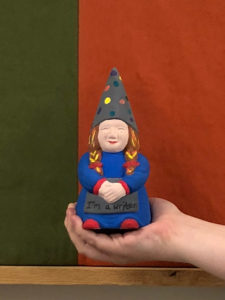
Join @depaulucwbl on Twitter as we tweet out pictures of UCWbLers with their favorite banned books, and continue to celebrate the joy of reading! Additionally, the DePaul Library (@dpulibrarian on Twitter) will be celebrating Banned Books Week along with us!
Happy reading, and happy Banned Books Week!
-Savy & the Outreach Team

